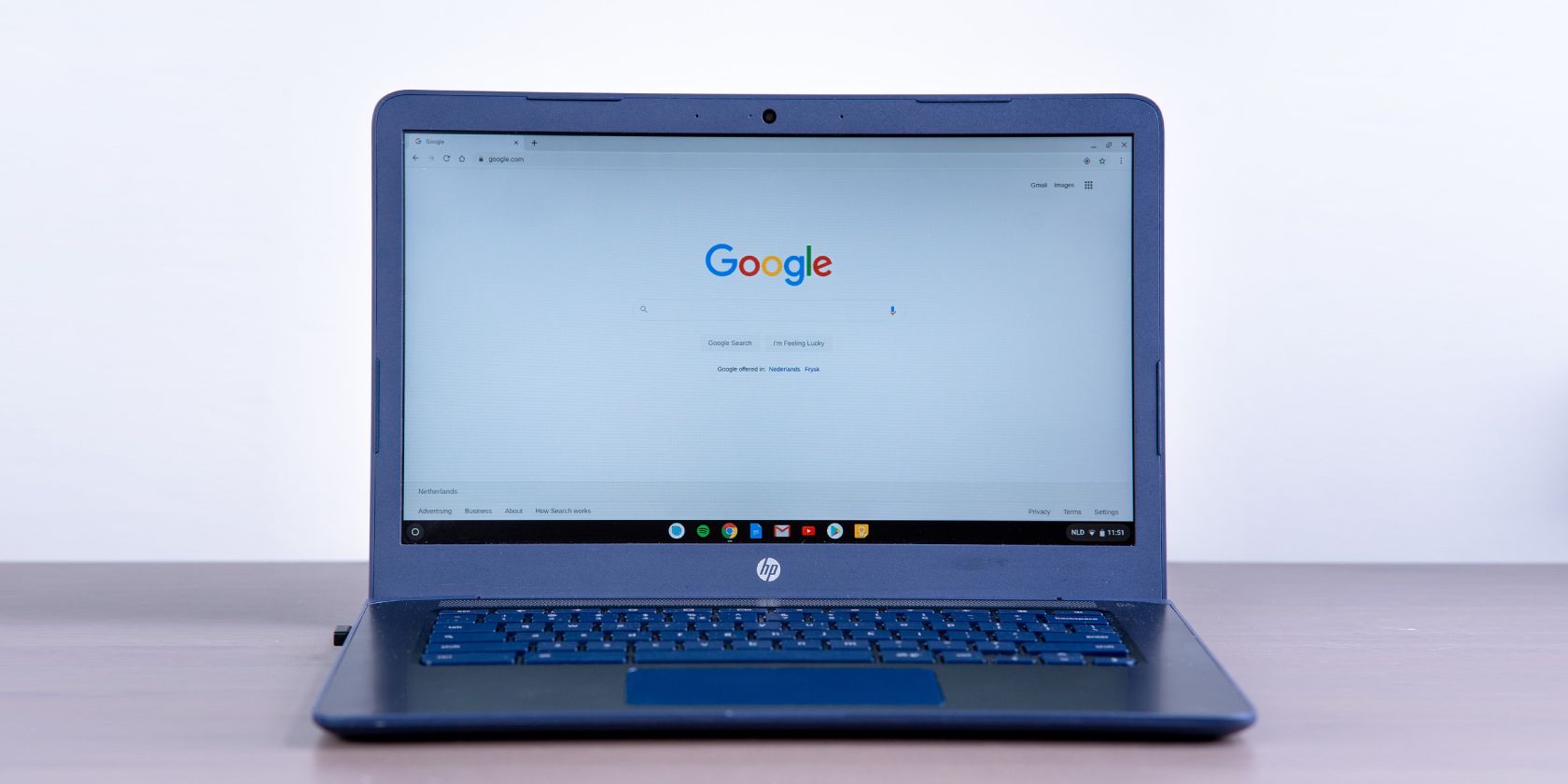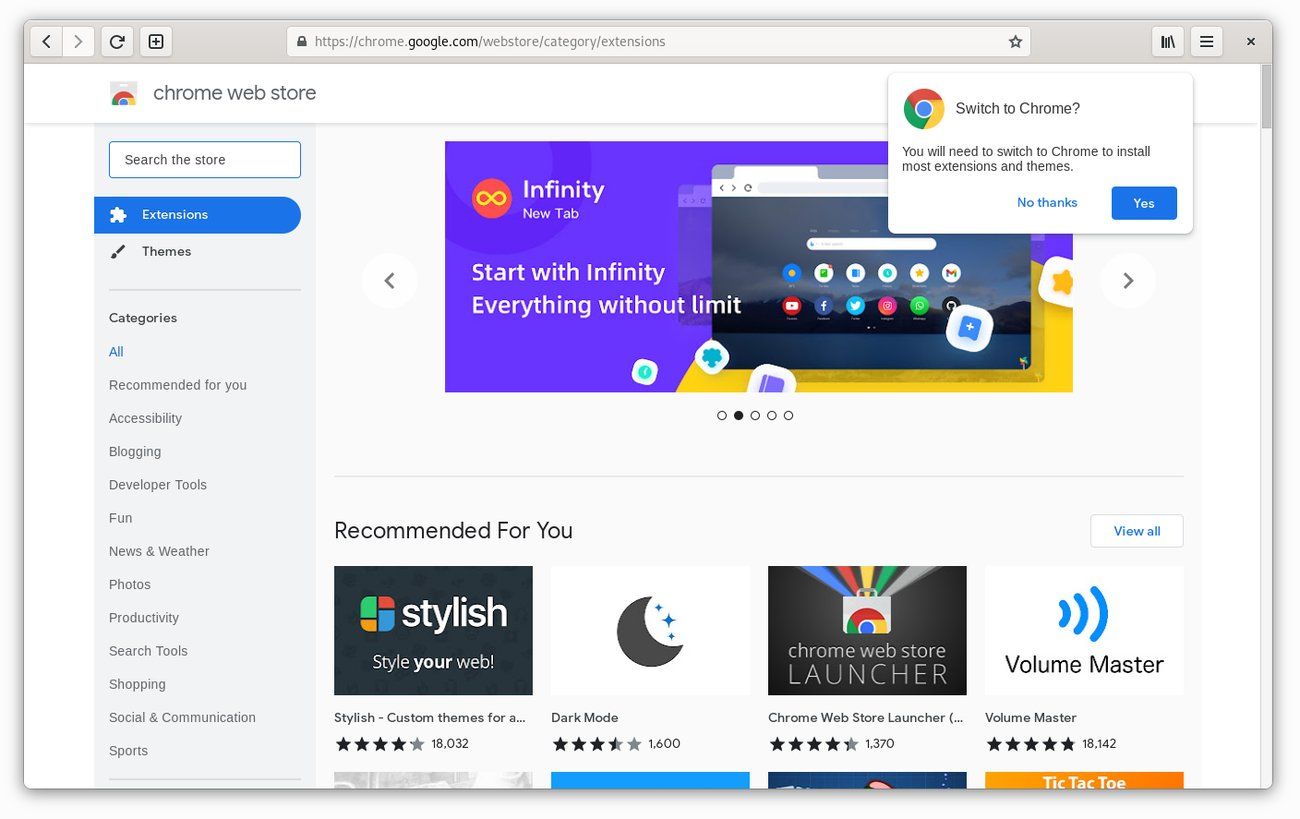Do Chromebooks run Linux? This isn't the way they're advertised, for sure. Google doesn't tell you Chromebooks come with Linux. They run Chrome OS, Google's take on what a desktop operating system can be.
But despite how different Chrome OS looks and feels, Chrome OS is based on Linux. So when we talk about Linux, are we also talking about Chrome OS? Here are eight points to consider.
1. Chromebooks Use the Linux Kernel
Linux, technically, isn't an operating system. It's a kernel, the part of your computer that enables your PC's hardware to communicate with software. The kernel is why things happen when you press buttons and why you can see things on your screen.
All the software you see on your screen? That isn't Linux. Linux has simply become shorthand for operating systems (also known as distributions, or distro for short) built using the Linux kernel. Chrome OS uses the Linux kernel, so by this standard, Chrome OS is desktop Linux.
2. Chrome OS Is Based on Gentoo
Chrome OS doesn't just use the Linux kernel. It is actually built on top of the Gentoo Linux distribution.
This means that much of what goes on behind the scenes isn't code developed by Google. It comes from the broader Linux community.
That said, don't expect to dive into the Gentoo experience. Even if you follow the steps to install full-blown Linux on your Chromebook, it won't be Gentoo that you're running.
3. You Can Install Some Linux Apps
The argument that Chrome OS is Linux doesn't stop there. Chrome OS now offers the option to install traditional desktop Linux apps using Crostini.
Now, these apps are not what drive people to Chrome OS. You need to first check to be sure your Chromebook comes with Linux app support. If it does, you can run native desktop Linux apps like GIMP and VLC on your Chromebook without having to switch it to developer mode or replace Chrome OS entirely.
4. Chrome OS and GNU Are Largely Incompatible
So far it seems pretty obvious that Chrome OS is Linux. So why is this even a question?
Well, when you see Linux discussed online, have you noticed how it's often written as GNU/Linux? That's because many of the components that currently go into providing a fully functional Linux desktop actually existed before the Linux kernel did. They came about as part of the GNU project. Much of what we associate with Linux has more to do with GNU than with Linux.
Chrome OS is based on Linux, but it doesn't share in the apps, values, or culture of the GNU project. It's Linux, sure, but it's not really GNU.
5. Is Chrome OS Free and Open Source?
A foundational part of the GNU project is making free software, with "free" referring not to the price but to your freedom to view, edit, and share the code. This is also known as open-source software.
The Linux kernel is free software. It's available under the GNU General Public License, which guarantees that the Linux kernel and all changes made to it remain free for everyone to use and share. All GNU software is also free software.
Much of what goes into Chrome OS is also free software, as it's available for anyone to download in the form of Chromium OS. You can install and run Chromium OS on your machine. But the full experience that you get on a Chromebook contains scores of closed source code.
Google adds proprietary bits to the browser, and the majority of apps and extensions you install are also closed source. So even if most of the code that goes into Chrome OS is open, most of the bits you consciously interact with aren't, just like on Android.
6. You Can't Swap Your Desktop Environment
This black code has a tangible impact on your experience with a Chromebook. Compared to your typical Linux desktop, you have relatively little freedom when it comes to how you set up or modify your experience.
You can't choose an alternate interface to the one Google provides. You can't swap out the audio or display server. You can pick your app store or preferred package format though.
In short, while most Linux desktops give you the freedom to configure your PC however you want, Chrome OS doesn't. You either use Chrome OS the way Google designed it, or you use crouton to substitute a proper GNU/Linux desktop in place of Chrome OS.
It's easier to either replace Chrome OS with Linux or use the two side-by-side than it is with Windows, but just like with Windows, they still feel like two separate things.
7. Development Is Not Community-Led
If code is available online for anyone to view, edit, and share, then yes, it's open-source. This is true of Chromium OS, the code that makes up much of Chrome OS. But this is only part of the story.
Most Linux distributions don't merely have open code or provide you with a way to contribute, they actively seek out your involvement in the direction of the project. They are also developed out in the open. There are mailing lists that people can subscribe to and monitor conversations about a project's direction.
Or there is a forum, or a GitHub, or a GitLab page. With Chromium OS, you are invited to get involved, but the direction of the project is primarily determined in-house at Google.
8. Chrome Apps Are Not Linux Apps
There are many desktop environments in the Linux ecosystem. They look and function in wildly different ways. But as different as GNOME and KDE Plasma may be from one another, you can run an app designed for one inside another. Most Linux software is interoperable, even if it may not integrate well and look out of place.
This isn't the case with Chrome OS. To be fair, software generally isn't designed for Chrome OS. It's either an Android app or a Chrome extension. And yes, you can install Chrome on Linux. But those extensions require Chrome, and Android apps require an emulator. Chrome OS exists in its own ecosystem separate from the rest of Linux.
So Is Chrome OS Desktop Linux?
Chrome OS is Linux, sure. But is it GNU/Linux? No, not really. And is Chrome OS what most people have in mind when they think of Linux?
Most Chrome OS users have no idea that they are using Linux. In this regard, Chrome OS has much more in common with Android than with other Linux-based desktops.
Ultimately, there is no simple answer to this question, and that has less to do with Chrome and more to do with how ambiguous of a name "Linux" for an operating system really is.




